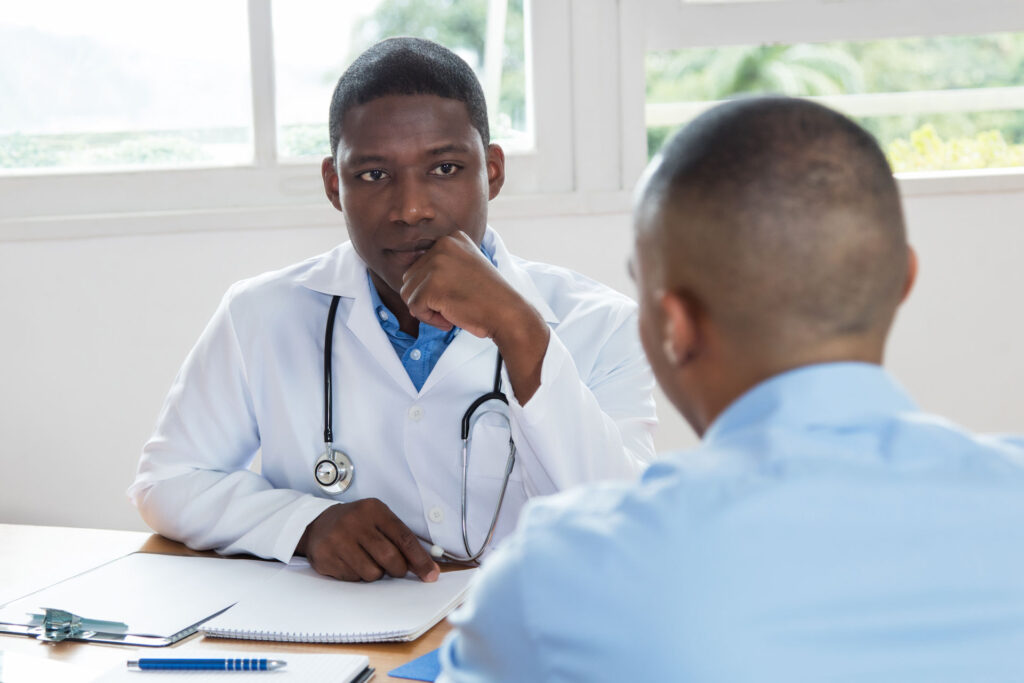In 2021, over 100,000 people in the U.S. died from an overdose. Over 70,000 of these deaths involved fentanyl and other synthetic opioids. Since nearly 200 people die from an overdose daily, it is crucial to know what to do when someone overdoses.
What is an Overdose?
An overdose happens when someone takes too much of a drug or substance, which can be very dangerous and even life-threatening. It can occur with medicines, illegal drugs, alcohol, or other harmful substances. The body cannot handle such a large amount, leading to severe problems.
An overdose can be accidental, like when someone takes the wrong dose or doesn’t know the strength of what they’re using. It can also be on purpose, like when someone tries to hurt themselves or abuses drugs.
The effects of an overdose depend on the substance and how much is taken. It can slow down or stop a person’s breathing, cause seizures, heart issues, or harm organs like the liver and kidneys.
Signs and Symptoms of a Drug Overdose
Knowing what to do when someone overdoses starts with understanding the signs and symptoms of an overdose. There is a wide variety of symptoms depending on the substance being used. Although some signs and symptoms of an overdose are also signs of being high, stopping breathing or becoming unresponsive are definite overdose signs.
Potential alcohol overdose signs and symptoms include,
- Mental confusion
- Trouble remaining conscious or being unconscious
- Unresponsive or unable to be woken up
- Seizures
- Vomiting
- Slowed or labored breathing
- Slow or stopped heart rate
- Cold to the touch or very low body temperature
- Pale or bluish-colored skin
The signs and symptoms of an opioid overdose include,
- Loss of consciousness
- Constricted or pinpoint pupils
- Trouble breathing
- Stop breathing
- Choking, snoring, or gurgling sounds
- Lips or fingertips turning blue or purple
- Unresponsive
If someone experiences an opioid overdose, they may have the following signs and symptoms.
- Extreme mental impairment
- Marked confusion
- Slurred speech
- Breathing difficulties
- Coma
It’s important to know what to do when someone overdoses or how to prevent it from occurring. A benzodiazepine detox program can be instrumental in saving. a life.
The signs and symptoms of a stimulant overdose include:
- Body temperature gets dangerously high
- Rapid breathing or hyperventilating
- Super high blood pressure
- Stroke, heart attack, or other cardiovascular event
- Hallucinations
- Panic
- Paranoia or psychosis
- Behaving aggressively
- Convulsions and seizures
Sometimes an overdose can result from combining two or more substances. Combining meth and cocaine or alcohol and benzos, for example, can increase the dangers of overdose.
If someone you know is overdosing, call 911 immediately and remain with them. Our meth detox center in Orange County can help.
Causes of an Overdose
Various factors can cause overdoses, and the specific causes can depend on the type of substance involved. Here are some common causes of overdoses:
- Incorrect Dosage: Accidentally taking too much of a medication or misreading the instructions can lead to an overdose. This can happen with prescription drugs or over-the-counter medications.
- Substance Abuse – Intentionally taking large amounts of drugs or alcohol to achieve a more potent effect or to cope with emotional or psychological issues can result in an overdose.
- Mixing Substances – Combining different drugs, such as opioids and benzodiazepines, or mixing drugs with alcohol, can create dangerous interactions that increase the risk of an overdose.
- Tolerance – Over time, the body can build a tolerance to certain substances, requiring higher doses to achieve the desired effect. This increased dosage can lead to overdose if not properly managed.
- Contaminated Substances – Illicit drugs may be mixed with harmful substances, making the dosage unpredictable and increasing the risk of overdose.
- Lack of Awareness – Some individuals may be unaware of the potency or strength of the substances they use, leading them to take dangerous amounts unintentionally.
- Underlying Health Conditions – Certain medical conditions can make individuals more vulnerable to the effects of drugs, making them more prone to overdoses.
- Mental Health Issues – People struggling with mental health problems may be at a higher risk of overdosing, especially if they use drugs to cope with their emotions or pain.
- Polydrug Use – Using multiple drugs simultaneously can lead to complex interactions, intensifying the effects and increasing the risk of overdose.
- Suicidal Intent – In some cases, individuals may intentionally overdose on drugs as a means of self-harm or suicide.
Overdoses are preventable. Education, harm reduction strategies, and access to medical and mental health support can significantly reduce the risk of overdose-related incidents. If you or someone you know is struggling with substance abuse, seeking help can prevent further harm.
Overdose Trends
Knowing what to do when someone overdoses is crucial for many reasons. One reason is there is a constant change in overdose trends. Unfortunately, due to social media, new trends pop up weekly, including some that can lead to an overdose.
Trends in the past include:
- Opioid overdose epidemic
- Fentanyl overdoses
- Polydrug overdoses
Check with an addiction treatment center or the Centers for Disease Control and Prevention to keep current on the most recent trends.
Evidence-Based Solutions Save Lives
The treatment for an overdose depends on the type of substance and the severity of the overdose. Here are some evidence-based treatments commonly used for managing overdose:
- Supportive Care – This is the primary treatment for most overdoses. It involves monitoring the person’s vital signs, providing oxygen, and maintaining an open airway to ensure proper breathing. Medical professionals may also administer intravenous fluids and medications to stabilize the person’s condition.
- Naloxone (Narcan) for Opioid Overdose – Naloxone is an opioid receptor antagonist that can rapidly reverse the effects of opioid overdoses.
- Gastric Lavage (Stomach Pumping) – When ingesting a toxic substance is recent, and the person is conscious and cooperative, gastric lavage may be used to remove the toxic substance from the stomach.
- Activated Charcoal – Activated charcoal may sometimes be used to absorb certain drugs or toxins in the stomach, reducing their absorption into the bloodstream. Like gastric lavage, activated charcoal is most effective when given shortly after ingestion and is generally administered in a healthcare setting.
- Monitoring and Supportive Interventions – For other types of overdose, such as benzodiazepines or stimulants, there is no specific antidote. Medical professionals will focus on providing supportive care, including monitoring vital signs, managing complications, and ensuring the person’s safety during recovery.
- Support and Counseling – Substance abuse treatment, counseling, and therapy can address the root causes of the overdose and provide tools for recovery.
What to do When Someone Overdoses

If you suspect someone is experiencing an overdose, taking immediate action can be critical in saving their life. Here’s what you should do if you encounter someone who may have overdosed:
- Call for Help – Call 911 immediately. The sooner you seek professional medical assistance, the better the chances of a positive outcome.
- Stay with the Person – While waiting for help, stay with the individual and monitor their condition closely. If they are conscious, keep them awake and talking to you.
- Keep the Person Calm – Reassure the person and keep them as calm as possible. Reducing anxiety and stress can help prevent further complications.
- Do Not Leave Them Alone – It’s essential to stay with the person to ensure their safety. If they lose consciousness, keep checking their breathing and responsiveness.
- Administer Naloxone (if available) – If you have access to naloxone (Narcan), an opioid overdose reversal medication, and are trained in its use, follow the instructions to administer it. Naloxone can help reverse the effects of opioids temporarily and give more time for emergency medical help to arrive.
- Do Not Delay Medical Help -Even if you administer naloxone and the person appears to be improving, still seek immediate medical attention. Naloxone’s effects may wear off before the drugs, and the person’s condition could deteriorate again.
- Do Not Induce Vomiting – Do not try to induce vomiting, as it can worsen the situation and lead to choking.
- Gather Information – Provide emergency responders with relevant information, such as the substances the person may have taken, how much, and any other pertinent medical history.
It’s essential to prioritize the person’s safety and well-being, and seeking professional medical help is crucial in the event of an overdose.
Many states also have Good Samaritan laws that protect people from prosecution if they seek help for someone experiencing an overdose. These laws are designed to encourage prompt action and save lives.
Treatments for Addiction
When someone receives treatment for an overdose, the doctor often recommends substance abuse treatment. There are various treatment options to meet people’s addiction and personal needs. Types of treatment include,
- Inpatient or residential treatment
- Intensive Outpatient Program
- Partial Hospitalization Program
- Outpatient Program
Many treatment centers also offer dual diagnosis treatment. A dual diagnosis is when a person struggles with both an addiction and a mental health disorder.
Further, Help for Drug and Alcohol Addiction

Individual therapy is the core of any evidence-based treatment program. It can help people get to the root of their addiction and begin to heal. During therapy sessions, therapists typically explore topics such as:
- Childhood experiences
- Current issues
- Interpersonal relationships
- Family dynamics
- Self-esteem
- Coping strategies
449 Can Help Save Lives
If you or a loved one is struggling with drug or alcohol abuse or co-occurring mental health disorders, we can help. At 449, we can help you achieve recovery before you have a fatal overdose. Contact us today to learn more.

Dr. Warren Taff MD, graduated from the University of Birmingham, England School of Medicine, with a BA from Rutgers University. He then went on to UCLA School of Public Health in Los Angeles Health and Human Services and received an MPH. He also attended an internship in internal medicine, with the Veterans Administration. Dr. Taff’s residency includes General Psychiatry at USC, with elective residencies at the Royal Prince Alfred Hospital in Sydney, Australia, and Royal College of Psychiatry. Board certifications include American Board of Psychiatry and Neurology. Dr. Taff has extensive experience in both psychiatry and addiction medicine, extending from 1979 to present. He has held professional titles that include Chief of Staff and Medical Directorship in both hospitals and private sectors.






